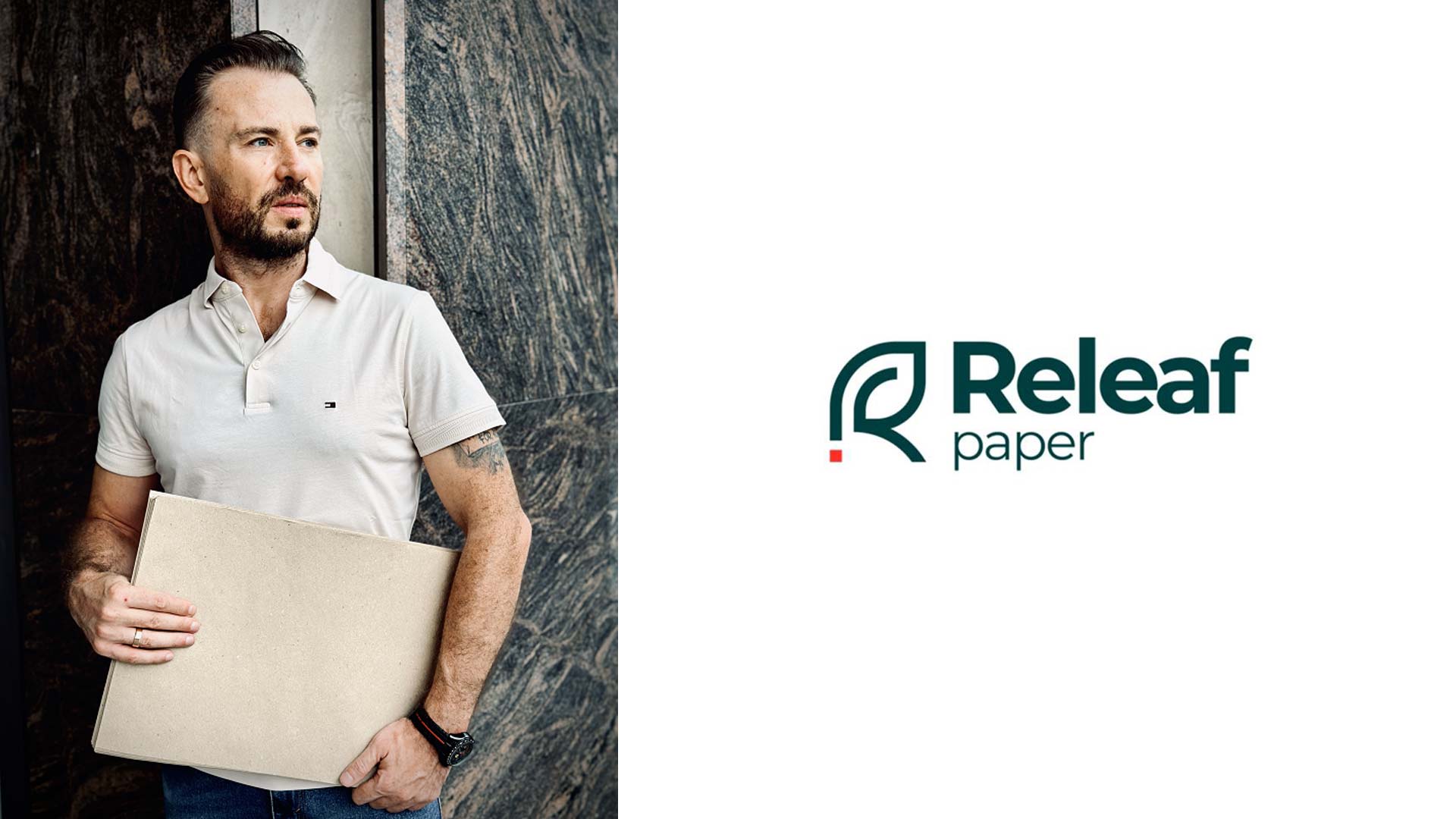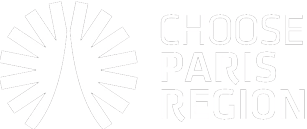
As one of the most forward-thinking territories in Europe, Paris Region is championing green solutions to tackle today's most pressing environmental challenges. Guided by its Impact 2028 strategy, the Region is on a mission to accelerate the ecological transformation. These initiatives aim to foster sustainable economic growth, drive eco-innovation, and enhance the circular economy.
At the heart of this dynamic ecosystem is Releaf Paper, a pioneering company transforming fallen leaves into sustainable paper packaging. Their cutting-edge innovation enriches the Region's robust green ecosystem, where businesses and public authorities collaborate to advance sustainability.
During this interview, Alexander Sobolenko, President of Releaf Paper, shares how the company is advancing Paris Region's sustainability goals while creating a global impact through its innovative approach to paper production.
Can you tell us about Releaf Paper and your role in the company?
My name is Alexander Sobolenko, the President of Releaf Paper. Releaf Paper is the first manufacturer of paper from fallen leaves. We rid cities of green waste and turn it into valuable raw materials. This reduces the use of virgin materials, offers a sustainable alternative, and accelerates the transition to recyclable packaging.
Can you tell us the story behind the creation of Releaf Paper? What inspired the idea of using fallen leaves to make paper?
The story of Releaf Paper begins in 2017 when 16-year-old Ukrainian biotechnologist Valentyn Frechka created the first hand-made paper castings using fallen leaf fibers in his home laboratory. This success served as the basis for further research into using leaves. In 2021, Releaf Paper was founded, where Valentyn became one of the founders and head of technology. The France-based company continued R&D of leaves as a material while working to bring its products to market. Fundamental research in the laboratory of Grenoble (France) completed the result of 6 years of work - Releaf Paper has created a scientifically proven technology for isolating fallen leaf fibers for use in paper production. The first products of the company, which is managed by one of the founders and CEO Alexander Sobolenko, have been successfully tested in several EU countries, and in 2024, the company opened its first industrial leaves processing pilot production in the Paris Region.
What is Releaf Paper's main mission, and how does sustainability factor into your business model?
Founded in 2021, Releaf Paper is a France-based company with a main office in Paris. The company's mission is to produce sustainable materials from green waste without harming the environment. Releaf Paper successfully valorizes leaves collected from the streets of Paris and surrounding cities and provides local eco-responsible businesses with materials for sustainable and stylish packaging. With Alexander Sobolenko as General Manager and Valentyn Frechka as Head of Technology, the company has its main production in the city of Les Mureaux (Paris Region). Currently, Releaf’s pilot production can process up to 20,000 tons of leaves per year.
How does the process of turning fallen leaves into paper work, and what makes this approach innovative compared to traditional paper production methods?
The patented technology created by Releaf Paper allows the use of various methods of processing green biomass - from mechanical to thermo-chemical. The combination of different techniques makes it possible to obtain various products, from filler to full fiber with paper-making properties. This makes it possible to use these materials for a variety of applications: paperboards and containerboards, injection molded containers, hygienic paper, bioplastics, etc. Both as the main raw material in its own right and as an additional component in combination with other types of fibers - recycled fibers or virgin wood.
- Impact
- Only 0,066 kg CO2 per kg during production (up to 70% lower compared to average* - global markets, open data)
- Only 0,002 l of water per kg during production
- <20 km logistics of raw materials
- 1 year time of restoration
- 55 days of biodegradation
Could you share any technological breakthroughs or partnerships in the Paris Region that have helped you improve your production process?
This November, Releaf’s pilot production was open and this is the first step to make more and more successful partnerships in France. Releaf Paper is excited to announce its participation in Uber’s ambitious new global sustainability initiative. The program, which begins with the Paris Innovation Pilot, is the first step in a wide-reaching strategy to transform the food delivery and mobility sectors with eco-friendly solutions, ultimately expanding to markets around the world.
What role has the Paris Region played in the development of Releaf Paper? How has being based in this Region supported your business growth?
Once settled in France, we faced a problem of getting raw materials for our production - fallen leaves. Most of the French cities we spoke to were not ready to provide leaves in the required amounts. We were able to find a sufficient supply of leaves together with a committed supplier only in the Paris Region. It was a crucial milestone for us.
What have been some of your biggest successes or milestones achieved here in the Paris Region?
Within just a year we were able to become a resident of Station F in Paris - Europe’s biggest incubator of innovative companies, to become a favorite of local media due to our innovation, and finally open the world’s first leaf processing factory.
How is Releaf Paper contributing to the circular economy and environmental goals in the Paris Region? What measurable impact have you seen so far?
We are able to process up to 20.000 tons of local leaves, preventing them from incineration and turning them into valuable raw materials. Making this, we are also saving up to 340,000 trees by replacing their pulp with leafy fibers in the process of making paper packaging. In addition, we contribute to up to 70% CO2 emission reduction by using these materials and our unique processing technology.
What are the future goals for Releaf Paper, especially as it continues to grow in the Paris Region and beyond?
The company's further development is to expand its local green waste recycling activities in other countries. For this purpose, Releaf Paper plans to set up at least 5 recycling facilities in Europe over the next 5 years. After that, the company plans to enter the US, Canada, and Japan. In addition to green waste, Releaf Paper also plans to use agricultural waste, such as vegetable stalks, vineyard stalks, flowers, tropical fruits, and palm leaves.
Lastly, can you describe the Paris Region in 3 words?
Eiffel, Seine, Releaf Paper

